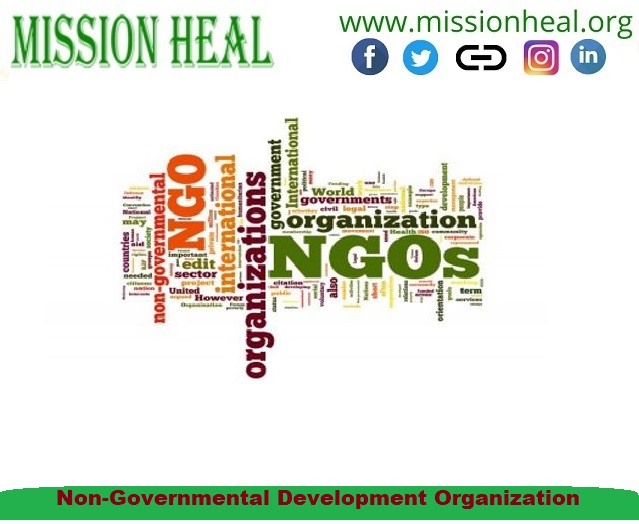Non- governmental development organization helps unprivileged people and who caters the needs of low income group. The greatest part you can do is to assist someone who is in need. The same is true for those who are destitute; even though they would never seek for assistance; we must all step up to support these families.
In order to improve the lives of the impoverished, Mission Heal offers counseling. India is a country with a sizable youth population. However, regrettably, a sizable chunk of the populace lives in squalor.
Till now in India, we are fails to address the mental health problem. As a result, patients with mental disease receive counseling from our NGO. One in four individuals worldwide, according to the WHO, has mental illnesses.
Although there are treatment options, unfortunately only two-thirds of patients receive them. We are striving to instill fresh conceptions and aspirations in these people. Nobody is at fault for having a mental illness; everyone experiences it occasionally.
Mission Heal a Non- governmental development organization believes everyone experiences mental illness at some point in their lives; it is not their fault. We offer them advice and support as they take action to counter the crisis. Their situation is improved by receiving treatment for their mental disease. They gradually motivate many others who are dealing with the same or a similar issue.
Why India Struggling in Health Care System
For a long time, India’s healthcare system has struggled with a variety of issues, including a lack of institutions and insufficient human resources.
There are following reason for India struggling in health care system.
-
Unmanageable Patient Load
The condition of healthcare facilities in India is even unmanageable before, after corona pandemic. Furthermore, when it comes to properly managing healthcare facilities, trying to serve a population of 1.4 billion remains a Herculean task in and of itself.
In India, there is one doctor for every 1404 people, especially in comparison to the WHO requirement of one doctor for every 1000 people. With limited resources and a scarcity of skilled careers, innovation can be of great assistance in maximizing output and realising the view of a linked health system.
- Lack of Trained Personnel
One of the most serious issues in the Indian healthcare sector is a shortage of qualified human resources. Nurses, doctors, paramedics, and other primary healthcare workers are included. The situation is even worse in rural areas, which are home to approximately 66% of India’s population.
Non- Governmental Development Organization on Need of Regular Health Checkup
In the past, people would only visit their doctor when they were seriously ill or near death. As people gain greater knowledge and control over their own health, preventative healthcare is now a standard practice.
Individuals are proactively looking for medical guidance on leading healthy lifestyles. By maintaining an appropriate nutrition, weight, and a certain amount of exercise. They hope to reduce their risk of developing a number of ailments or diseases.
In order to maintain good health, non-governmental development organization is also urging people to have routine checkups. They are emphasizing the value of prevention as a way to lower the number of individuals who need to undergo surgery or hospital attention.
Regrettably, the majority of the advancements made over the previous few decades have not been able to solve the problems that the majority of women experience. Hurdles including preventable diseases, gender inequity, costly healthcare expenditures, and patriarchy violence, harm people from underprivileged and vulnerable groups.
Studies show that those who have checkups occasionally are more likely to get ailments than those who do so annually. The reason for this is that more than 80% of individuals don’t lead healthy lifestyles, and getting frequent checkups increases our awareness of our health, our existing lifestyles, and the best practices for leading healthy lives.
Education and medical care are incredibly significant for women and people of colour because they bear the greatest social and health costs as a result of systemic gender discrimination.
This has an impact on their access, efficiency, and overall quality of life. It is essential to confront each formative parameter through a gender lens and to consider the needs of both genders when formulating policies. Making choices, and assigning funds, in order to ensure the gender disparity doesn’t really take an excessively long time to close.
Mission Heal Empowering Women Health Care
One of the essential rights that are seriously considered by government, NGOS, is gender equality. There are several factors, including sociology, counseling, psychology, medicine, and nursing, offer a wealth of insights and suggestions for tackling the majority of the problems plaguing many communities.
It is acceptable to consider all of these disciplines when concentrating on subjects such as women, gender, and women’s health. Scholars in such fields can work together to introduce proof ideas with the possibility of helping in the advancement of enabling health-care systems. This goal is attainable because such professionals have the required skills and theory building to improve people’s stories and encourage their goals.
To attain gender equality is important to have women role in gender health sector. For this at present, we need to look at some report like Global Gender Gap Report released by World Economic Forum. The four key dimensions are economic involvement and opportunity, educational achievement, survival and health, and political empowerment.
The Global Gender Gap Report assists countries in tracking their progress and promotes healthier competition to accomplish gender parity goals. Nations can use each other as models, learning from each other’s experiences, policies, and programmes, as well as examining what works and what does not in an attempt to successfully overcome the gender gap.
Mission Heal, a non-governmental development organization, sees health as an important factor that needs to be addressed. A regular health checkup needs to done to avoid any difficult situations.
You can read such blogs and articles on the website https://missionheal.org/. Follow us on Facebook, Twitter, LinkedIn, and Instagram.

